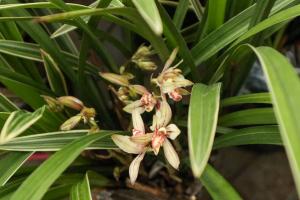Is Douglas Fir Good for Planter Boxes?
If you're looking to build planter boxes for your garden or patio, choosing the right type of wood is crucial. Douglas fir is a popular choice for planter boxes due to its durability, versatility, and affordability. However, there are some factors to consider before deciding if Douglas fir is the best material for your project.
Pros of using Douglas Fir for Planter Boxes
Douglas fir is known for its strength and resistance to decay, making it an ideal material for outdoor projects. Here are some of the main advantages of using Douglas fir for planter boxes:
Durability: Douglas fir is a sturdy type of wood that can withstand harsh weather conditions and resist rot and decay. This means that your planter boxes will last longer and require less maintenance.
Versatility: Douglas fir can be stained, painted, or left natural to match your decor style. It also comes in different grades and thicknesses, allowing you to customize your planter boxes to fit your design needs.
Affordability: Compared to other types of wood, Douglas fir is relatively inexpensive, making it a budget-friendly option for DIY projects.
When it comes to selecting the right type of wood for your planter boxes, Douglas fir checks all the boxes.
Cons of Using Douglas Fir for Planter Boxes
While there are many advantages to using Douglas fir, there are also some drawbacks to consider. Here are a few potential downsides to using Douglas fir for planter boxes:
Prone to splintering: Douglas fir can be prone to splintering, especially if it's not properly treated or sealed. This can make it uncomfortable to handle or even injure you or others.
Not ideal for edibles: If you plan to plant herbs, vegetables or other edibles in your planter boxes, you may want to consider using a different type of wood. Douglas fir can contain sap that may be toxic to some plants.
Requires maintenance: While Douglas fir is relatively low maintenance, it still requires occasional sealing or staining to protect it from the elements and keep it looking its best.
Considering these factors, it's important to weigh the pros and cons of using Douglas fir for your planter boxes and decide if it is the right choice for your specific needs and preferences.
Tips for Building Planter Boxes with Douglas Fir
If you ultimately decide to use Douglas fir for your planter boxes, here are some tips to ensure your project is a success:
Choose a high-grade wood: To ensure the best quality and durability, opt for higher-grade Douglas fir wood that's free of knots or other imperfections.
Treat and seal the wood: Apply a sealer or stain to your Douglas fir planter boxes to protect them from moisture, UV rays, and other outdoor elements.
Consider lining the boxes: To further protect your Douglas fir planter boxes, consider lining them with plastic or a waterproof membrane. This can help prevent soil and water from coming into direct contact with the wood, which can cause rot and decay.
With these tips in mind, you can build beautiful, sturdy, and long-lasting planter boxes with Douglas fir that will enhance the beauty of your outdoor space.
Conclusion
Is Douglas fir good for planter boxes? It's a resounding "yes!" With its durability, affordability, and versatility, Douglas fir is a smart choice for DIY enthusiasts looking to build a beautiful and functional garden or patio. However, it's important to weigh the potential downsides and take steps to protect and maintain your planter boxes. With the right materials, tools, and techniques, you can create planter boxes that will add value and beauty to your outdoor living space for years to come.

 how many times do yo...
how many times do yo... how many planted tre...
how many planted tre... how many pine trees ...
how many pine trees ... how many pecan trees...
how many pecan trees... how many plants comp...
how many plants comp... how many plants can ...
how many plants can ... how many plants and ...
how many plants and ... how many pepper plan...
how many pepper plan...





























